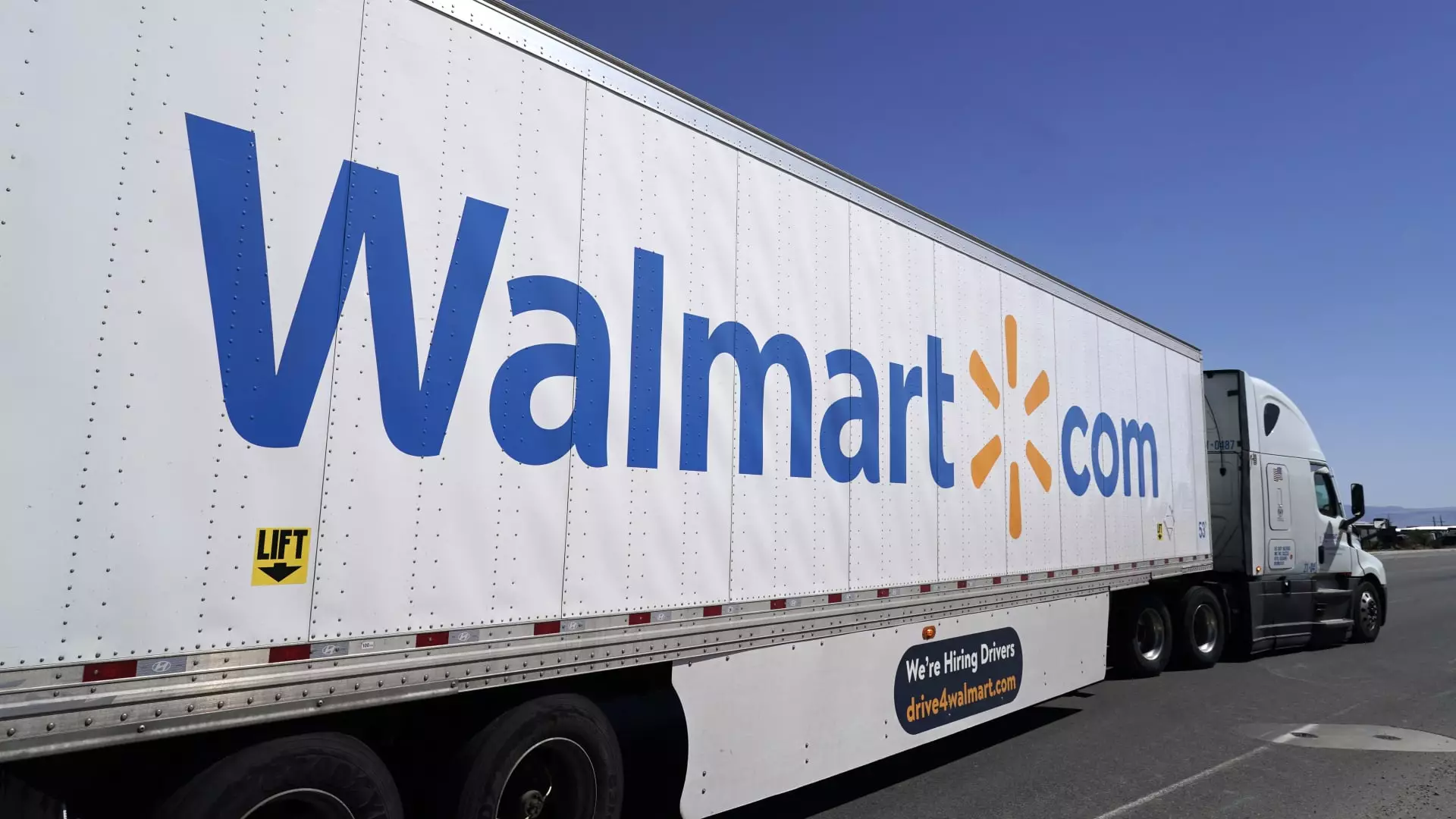The recent legal actions taken by the Consumer Financial Protection Bureau (CFPB) against Walmart and the work-scheduling platform Branch Messenger highlight serious concerns regarding the treatment and compensation of gig economy workers, specifically delivery drivers. This complaint sheds light on a broader issue surrounding worker rights in the evolving landscape of app-based employment. As these companies dominate the gig economy, the implications of their practices resonate with over a million delivery drivers involved in the Spark Driver Program.
At the heart of the CFPB’s complaint are allegations that Walmart and Branch Messenger effectively coerced delivery drivers into using subpar and costly deposit accounts, jeopardizing the financial stability of workers. According to CFPB Director Rohit Chopra, this practice entailed making false promises, illegally opening accounts, and taking undue advantage of drivers. The complaint indicates that since 2021, Walmart has overseen the opening of Branch accounts without obtaining the necessary consent from drivers, a potentially illegal maneuver that raises ethical questions.
More troubling is the allegation that drivers faced threats of termination should they refuse to use these accounts. This not only complicates the already precarious nature of gig work but could establish a legal precedent regarding the limits of employer power in influencing how wages are received. The supposed imposition of these accounts is not merely an inconvenience; it comes with substantial financial ramifications, including over $10 million in obscure fees that ultimately diminished drivers’ earnings.
Moreover, reports suggest that once drivers utilized the Branch platform, they were met with unexpected delays and fees when attempting to transfer their hard-earned wages. This situation underscores the need for greater scrutiny of the financial practices employed by corporations that rely on gig workers, as they often lack the same safeguards afforded to traditional employees.
In response to these serious allegations, both Walmart and Branch have issued statements vehemently disputing the CFPB’s claims. Walmart characterized the lawsuit as rushed, claiming it contains inaccuracies and exaggerations. The spokesperson criticized the CFPB for not providing the company a chance to present its defense during the investigation process, a claim that raises questions about the regulatory agency’s practices but does not absolve the corporations of their responsibilities.
Branch also rebutted the allegations, characterizing the CFPB’s statements as distorted and misleading. By raising defenses of factual inaccuracies, both companies appear to shift focus from the core issues of worker treatment and labor rights to defending their reputations. This reaction illuminates a common trend in corporate response tactics, where accountability is often obscured by legal jargon and technical rebuttals rather than genuine dialogue about worker rights.
The lawsuit against Walmart and Branch is indicative of a larger trend in regulatory oversight, particularly as the CFPB has ramped up actions against financial misconduct affecting consumers and workers. Previous cases involving banks and payment platforms underscore a growing need for stringent regulation in the financial services space, especially for those products designed for lower-income individuals or gig workers who already face considerable financial hurdles.
As gig economies proliferate, companies must be held accountable for how they manage worker compensation, particularly in facilitating access to earned wages. The troubling details within the CFPB complaint point to a potential systemic issue that could affect millions of workers across various platforms. This situation calls for not only regulatory action but also the need for solidarity among gig workers to advocate for their rights effectively.
As this legal case continues to unfold, the implications extend beyond Walmart and Branch. It poses critical questions about the future of gig work and the financial systems that support it. Will this case prompt other corporations to reevaluate their compensation practices, or does it signify a need for broader systemic change in how gig economy workers are treated? As it stands, the outcome of this lawsuit could set significant precedents, ultimately influencing how workers are treated within an economy that has grown increasingly reliant on flexible, but often precarious, employment.
The actions taken by the CFPB against Walmart and Branch Messenger underscore the need for vigilance in the treatment of gig workers and assert a call for more robust legal frameworks to protect their financial rights.


Leave a Reply